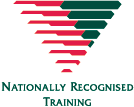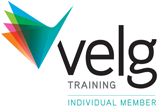Entering a new organisation as a new graduate?
You are a young graduate moving into a company. I have seen this scenario many times. How best do you start this journey? How do you enter this world without making too many mistakes? without treading on toes!?
are a young graduate moving into a company. I have seen this scenario many times. How best do you start this journey? How do you enter this world without making too many mistakes? without treading on toes!?
My answer, based on many years of working at the Executive Management level, comes down to these few pieces of practical advice.
1.Most importantly, take a ‘watch and see’ attitude for at least the first 2-3 weeks. Do not be too ready and solve the organisation’s ‘problems’. Fresh eyes and knowledge can provide great new ideas, but remember when you criticise or suggest change you can devalue the work of others and this is not always well received. Take the time to learn what kind of culture the organisation has; what their major are; and their strengths and weaknesses.
After a few weeks when you have the whole picture select the right person to share your suggestions with.
2. Respect and recognise others – To be a respected, you need to have an appreciation and respect for how everyone in a team contributes. Respect for others also needs to be articulated directly – we all like being told we have done a good job. The need for recognition and respect comes up again and again on staff satisfaction surveys. This helps build good relationships and leads to better collaboration.
A key skill here is Emotional Intelligence, understanding and managing our own emotions as well as those of others. This is something we all need to work on.
3. Always view the organisation and its direction from a strategic perspective/ the ‘big picture’. While it is important to value the detail and process make sure you can always view it through the strategic lens.
4. Understand your own goals, including several options you would be happy with. This should include a Personal Development Plan which covers:
- potential goals
- an analysis of your strengths and weaknesses
- how you are going to build on those strengths and address those weaknesses
- achievable steps to take you where you want to be
- professional development you will need. Take charge of your own professional development – do not wait for your employer to identify what training you need, and do not rest on what you have done.
If possible, work with a mentor on your Development Plan. The process of developing a plan is often more valuable than the plan itself.
Share with your manager and others where you want to go and what you want to achieve. Make it clear to your manager what you want to achieve and seek their advice on how you can get there. They will usually be pleased to be asked and may provide good advice. Importantly they will know you want to move up the ladder and should keep an eye out to match you with opportunities.
5. Be opportunistic. Having made a plan do not be afraid to take up random opportunities as they arise. This is especially true early in your career, as new experiences broaden your knowledge and open up new opportunities. Never fear change – embrace it! be at the forefront!
6. Lose that fear, especially fear of failure – failure builds us. Once accepted in the organisation put your hand up in public forums and ask questions. If you want something in the workplace – ask your manager. This lack of fear is important when it comes to making decisions. You need to do your research then make the recommendation or the decision. Do not suffer in silent fear of making the wrong decision – be prepared to fail and learn from it.
Remember, watch and listen; plan; be open to new ideas; work hard on raising your thinking to the strategic level; build relationships; make decisions; ‘lose that fear’ ….
AND ENJOY THE JOURNEY.


